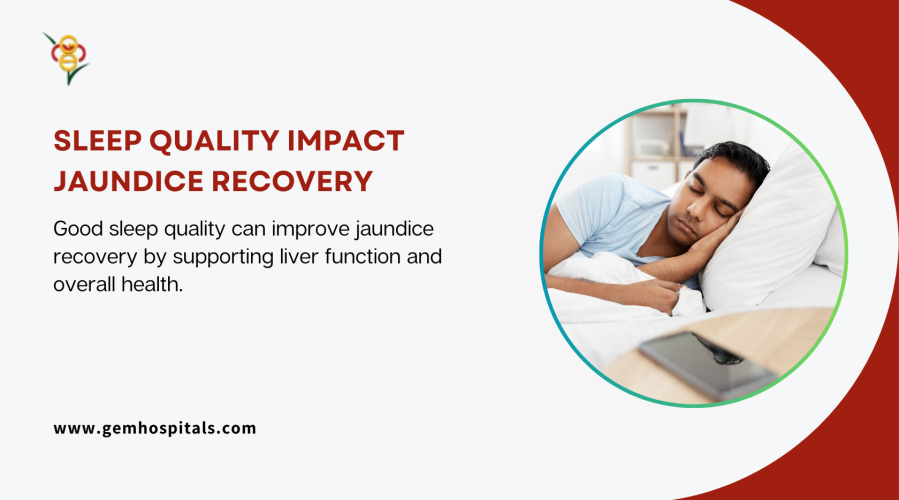Learn effective solutions for digestive problems with expert tips to improve gut health, reduce discomfort, and maintain a healthy digestive system.
How Does Sleep Quality Impact Jaundice Recovery?

Jaundice is a medical term described in how there is a failure in production or breakdown in the body because of the bilirubin content being inadequate. Breakdown and excretion of bilirubin are central functions of the liver, but poor liver function often leads to jaundice symptoms. Indeed, many cases of jaundice resurface after weeks or months based on the cause. From what is stated, health, strength of the immune system, and personal habits do indeed contribute to rates of recovery. General sleep can also sometimes be an underrated factor in helping to recover a faster liver.
Understanding Jaundice and Its Recovery Process
Jaundice develops when the liver is unable to break down bilirubin, which in turn gathers in the body. The liver plays a significant role in breaking down and eliminating bilirubin; thus, impairment in liver function leads to the occurrence of jaundice symptoms. Some instances of jaundice might recover in weeks or months. Other determinants may include overall health and strength of the immune system, or lifestyle preferences. Undervalued, a full night of sleep may add its own set of support towards healing faster from the service of the liver.
The Role of Sleep in Body Repair and Immune Function
Sleep is essential to virtually every function in the human body, from immune health to tissue repair. Critical maintenance and repair occur in the deeper levels of sleep, which are important for immune function - fighting infection that can worsen jaundice. It also offers a time for the liver to detoxify blood and ensure that bilirubin is returned to normal ranges. In the absence of enough sleep, all these functions will not be maximal and, thus, recovery will take time.
How Poor Sleep Quality Can Slow Down Jaundice Recovery
Poor-quality sleep comes with several adverse effects in the body, including weakened immunity, increased inflammation, and slowed cell repair. When sleep is interfered with, it weakens the ability to fight infections and inflammation of the immune response. With conditions like jaundice, often attributed to existing conditions in the liver or the immune system, poor sleep is likely to heighten its influence on the body, making recovery more extended and painful.
Benefits of Good Sleep Quality for Jaundice Recovery
Blogs & Article
Explore current research trends in digestive health, including new treatments, advanced diagnostics, and innovations improving gut health and patient care.
Discover common digestive health myths and the real facts. Learn simple tips to improve gut health and maintain better digestion for a healthier life.


